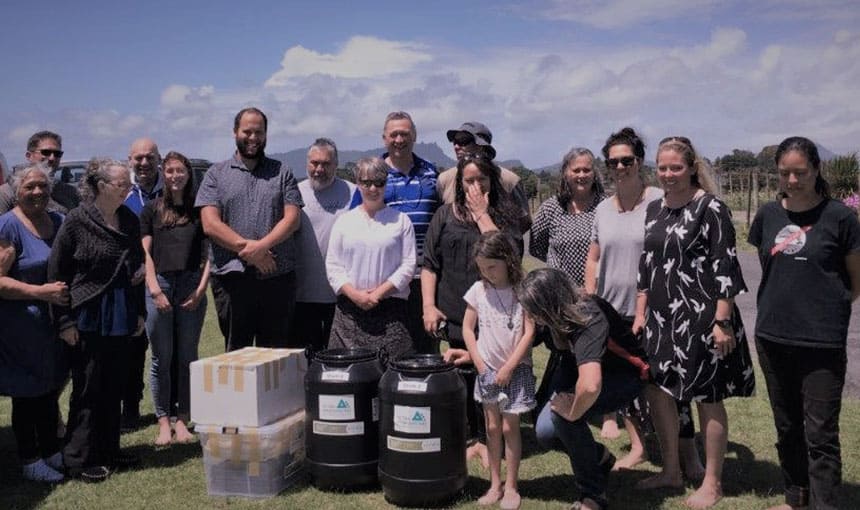Via Te Tira Whakamātaki (the Māori Biosecurity Network), the seed-banks were delivered to Patuharakeke whānau earlier this week. The hapū is the sixth recipient of a seed-banking drum kit built as part of a BioHeritage project focused on developing Māori solutions to fight myrtle rust.
Easy to build and straightforward to use, seed-banking drum kits enable communities to conserve and dry seeds according to their own mātauranga (knowledge) and traditional collecting tikanga (protocols).
Patuharakeke kaumātua (elders) blessed the seed-kit, calling it a gift that would be treasured.
“The seed-bank is really going to enhance a number of efforts we are undertaking as a hapū to revitalise our traditional customary practices and protect and restore our taonga species,” says David Milner, of Patuharakeke Taiao/Resource Management Team.
“Our kaitiaki are currently working on a wider pest management strategy for the native bush blocks in Takahiwai. They can’t wait to get their hands on this fantastic kit and get up in the ngahere (bush) with it.”
The seed-banking initiative was launched when Māori communities identified seed-banking as central to protecting Aotearoa New Zealand from threats such as myrtle rust. Myrtle rust is a serious fungal disease that attacks trees in the myrtle family, including taonga species pōhutukawa, mānuka and rātā.
